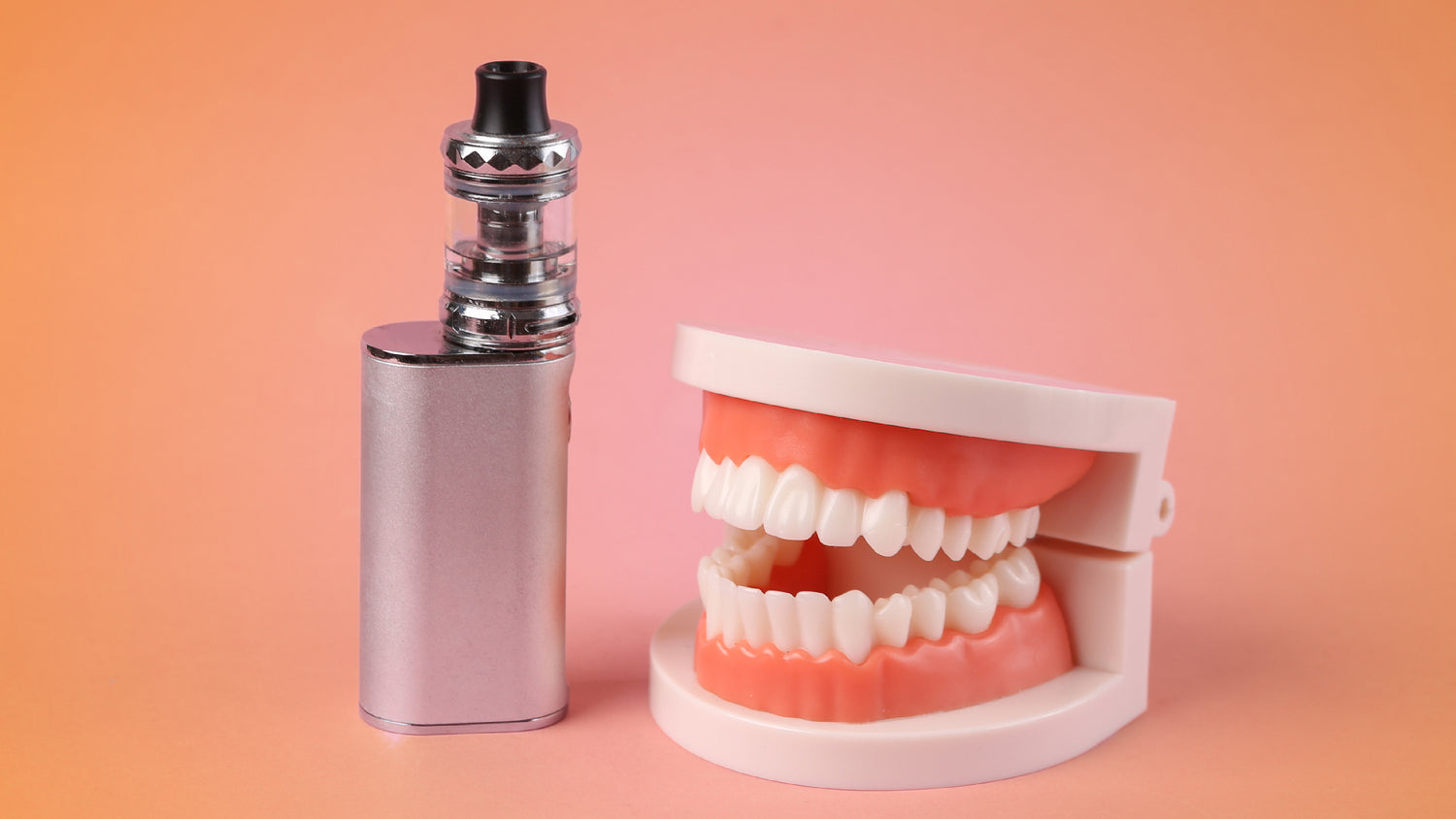There is very little research about how vaping specifically affects teeth. Many dental health sites will blame nicotine, tar, and tobacco for all sorts of dental problems without differentiating between them. We will try and clear up a few misconceptions, as well as say what is generally agreed upon.
Many people believe vaping is better than cigarettes because there is no combustion, so no tar is produced in vaping. Tar may be awful, but it is not the only tobacco-related chemical to ruin teeth. After all, chewing tobacco has no tar, but is known to be particularly bad for teeth. So, are all tobacco-related teeth problems caused by nicotine?
We cannot say for certain. It is likely that nicotine is not harmless - irritation is a possible side effect even in nicotine gum. However, there has also been a study in which stopping cigarettes and using nicotine gum lead to whiter teeth. Additionally, there are many other chemical components to tobacco besides nicotine and tar. Though e liquid also contains nicotine, it shares few other chemical components with tobacco. According to cancer.gov:
“The most harmful chemicals in smokeless tobacco are tobacco-specific nitrosamines, which are formed during the growing, curing, fermenting, and aging of tobacco.”
“In addition to a variety of nitrosamines, other cancer-causing substances in smokeless tobacco include polonium–210 (a radioactive element found in tobacco fertilizer) and polynuclear aromatic hydrocarbons (also known as polycyclic aromatic hydrocarbons).”
In other words, there are a lot of harmful chemicals in tobacco, not just tar and nicotine. Smoking related tooth issues can be caused by many of them, and may not be associated with nicotine.
High quality e liquids should be made with a pure nicotine, meaning those chemicals should not be present in vape. However, that means until there are studies on vape ingredients and nicotine specifically, it will be hard to define exactly how vaping will affect teeth.
Despite the complexity, there are two effects vaping has on your mouth that are generally considered bad for your teeth.
- Vaping dries out your mouth. Propylene Glycol (PG) is one of the major ingredients in vape. PG is approved for use as a food additive, so it is relatively safe in your mouth. The issue is that PG absorbs water, and can lead to dry mouth. Keeping your mouth hydrated is important for taking care of your teeth. Vapers should always drink extra water to counteract this.
- Nicotine is vasoconstrictive. That means it will affect blood circulation, including the decreasing circulation to gums. Generally, this does make gums and teeth weaker.
This is why vaping should not be an option to those who are not trying to quit cigarettes.
References:
Definition of tobacco tar - NCI Dictionary of Cancer Terms
Smokeless Tobacco: Health Effects | CDC
Nicotine Gum | Quit Smoking | Tips From Former Smokers | CDC




1 comment
Louise
As a former smoker of 44 yrs and someone with gingivitis – vaping has no negative effects on your teeth or gums. I go every 4 month due to plaque forming below my gum lines. I am so glad for vaping. Smoking was making my dental hygiene visits stressful; trashing my lungs; robbing me of my health, acquired COPD. NOW:
4 yrs this July – no smoking, just vaping and I feel better than I have in decades. My dental hygienist is very happy with my results now; now it shows that I floss and brush and that is an easier task now too.
Started vaping 24 mg at 30 ml per week; now I’m 10 mg and down to 14-15 ml per week. MUCH CHEAPER TOO. Saving 5-6 thousands a year. My costs on vape per yr $200-250 depending if I am replacing a device at $30-40 each or not. Good brands are lasting me 2 yrs and I’m passing them on to other to get them to start vaping instead of smoking or toking. Thanks for bringing this up as many smokers have dental issues due to smoking, like I did and it’s so much better now. Oh and they did a deep pocket measurement on my gums – holding steady and some improvements.
Sincerely, Louise D
Leave a comment
All comments are moderated before being published.
This site is protected by hCaptcha and the hCaptcha Privacy Policy and Terms of Service apply.